Around 400 residents in the Ottawa south neighbourhood will have to leave their homes behind
For Ikram Dahir, home will always be a tightly-knit neighbourhood in Ottawa’s south end, nestled between Heron and Walkley Road—a place called Heron Gate.
Dahir, her mother, father, grandmother, and brother first moved to the community in December of 1990 when they immigrated to Canada from Somalia.
“All our memories, memories from when my parents first came to Canada up until now, they’re all based in this neighbourhood,” she said.
Dahir, now a 28-year-old medical booking clerk, moved out of her childhood home in the community in 2013 to a highrise across the road, but when she walks through the neighbourhood the memories are overwhelming.
She remembers after school, waiting patiently by her front door until her parents gave her the okay to join the other children of the neighbourhood outside.
“We wouldn’t come in until the lights in the neighbourhood turned on,” she recalled.
But these days, things don’t look like they used to.
The basketball courts Dahir used to spend her time on stand ominously empty, the rhythm of a dribble and hum of the game muted. Scrawled across center court: “Muslims go back to ur contry (sic).” Dozens of homes are vacant, marked by shattered windows and belongings left behind in the midst of the movement of a community.
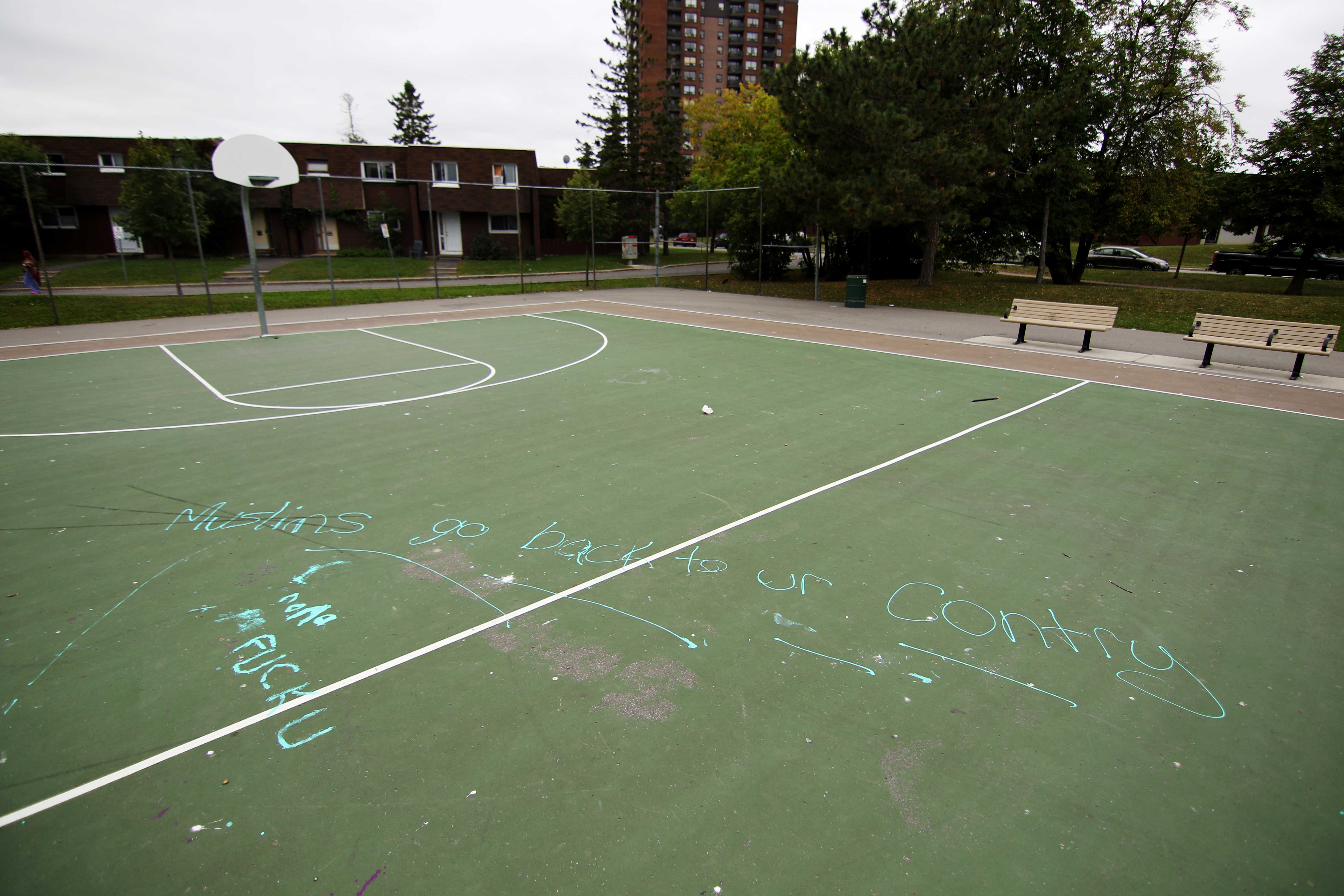
Later this year, 150 low-rent, three- and four-bedroom townhouses in the neighbourhood will be torn to the ground, including the home where Dahir’s mother, father, grandmother, and brother still live, leaving over 400 people scrambling for new housing in the city. Come Sept. 30, the Dahirs will have to leave the only community they’ve ever known in Canada behind.
Paving the way for redevelopment
Timbercreek Asset Management, real estate giant and the landlord for the rental community, broke the news to tenants back in May of this year that they would be demolishing the townhomes as part of their plan to redevelop the neighbourhood.
While Timbercreek Asset Management did not respond to multiple requests for comment from the Fulcrum, they told the Globe and Mail that the decision came after they determined a quarter of the 150 homes marked for demolition to be uninhabitable and too costly to repair.
One issue hiking up repair and renovation costs, Timbercreek told the Globe, is that the homes are connected with a roof line and share the same sewage system—if they renovate or repair one, they’ll have to do them all.
Legally speaking, Timbercreek is in the clear.
The company provided tenants with the required 120 days notice, and compensation of three months rent under the Residential Tenancies Act. Moreover, they’ve also given tenants an unrequired $2,000 to help accommodate the moving process and has struck a team to help evicted residents find new housing in the city.
But this isn’t the first time Timbercreek is levelling ground in the neighbourhood.
In winter of 2016, Timbercreek demolished another 80 townhomes to pave the way for three six-storey apartment buildings to accommodate close to 350 residents, slated to be completed in June of 2019.
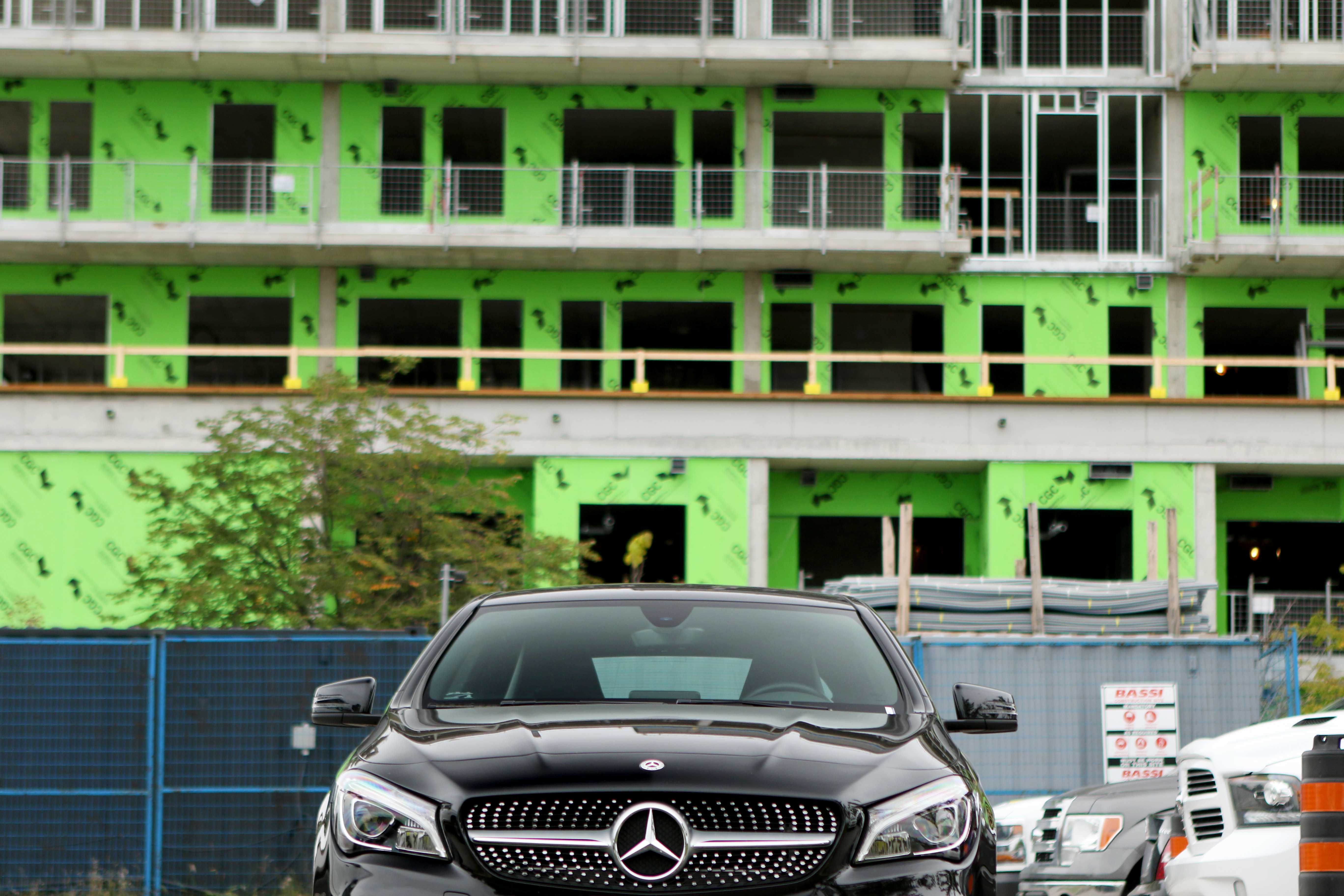
But this time around, the community isn’t backing down.
Community residents and advocates alike have come together to form the Heron Gate Tenant Coalition (HTC) marked by the slogan #DefendHerongate. Tenants facing eviction have also hired local lawyer Daniel Tucker-Simmons to represent them in their fight against Timbercreek.
“We talk about Canada being a first world country but now people aren’t going to have housing by the end of September and that’s absolutely horrifying,” said HTC organizer Mumina Egal, a graduate from the University of Ottawa’s political science and criminology programs. “Whether people decide to stay in the neighbourhood or not, we’re going to fight this.”
A snapshot of a fading neighbourhood
The Timbercreek-owned Heron Gate community is 16-hectares in size, roughly equivalent to the size of 16 rugby fields, composed of around 1,600 units.
According to Statistics Canada’s 2016 census, the neighbourhood has a population of just over 4,500, many of whom are minorities. About 65 per cent of the Heron Gate population self-identified as a visible minority: 29 per cent Black, 14 per cent Arab and 11 per cent South Asian.
Per the HTC’s own research, these numbers may be even higher.
This May and June, the HTC conducted a census of the 121 of the 150 homes slated to be demolished.
Their recon found about 90 per cent of those facing eviction are people of colour. The census also notes that these homes house an average of five people per home.
Heron Gate is also a low-income community: the median after-tax income for those living in the neighbourhood was just below $19,000, well below the regional average of around $36,000.
The Ottawa Neighbourhood Study, run out of the Centre for Research on Education and Community Services (CRECS) at the U of O, provides a secondary snapshot at the Heron Gate demographic.
According to their census of the Ledbury-Heron Gate-Ridgemont region, over 60 per cent of households are making under $50,000 after-taxes, strikingly higher than the Ottawa average of 35 per cent.
Close to 45 per cent of residents in the region recently immigrated to Canada (the Ottawa average sits at about 23 per cent), about 14 per cent of them within the past 12 years.
In terms of repairs, the study shows 12.4 per cent of homes in the region required major repairs, double the Ottawa average.
Repair or neglect?
There’s no denying that the community is in desperate need of repair and restoration—this is something tenants agree with. Horror stories include everything from cockroach infestations to flooded basements, mould, and leaky pipes.
A walk through the streets of Heron Gate slated for eviction confirms this. As of Sept.19, almost all the homes are empty and the grounds are eerily desolate.
However, according to the HTC, many tenants allege that Timbercreek has allowed their properties to reach such a state of neglect.

“I think they purposely neglected these homes as a way to evict people,” Egal said.
Dahir testified to this.
She said a leak emerged in the upstairs bathroom of her parent’s home in September 2017. They filed a work order, but by December still no repair had been done.
“You could literally put your fist up into the ceiling,” she said.
After calling the City, once in December and once in June of this year, Dahir said the repair was finally completed, close to a year after the issue first emerged.
However, Timbercreek has disputed these claims, telling the Ottawa Citizen they’ve invested $45-million in the neighbourhood since purchasing it back in 2012-13.
Other reports suggest Heron Gate properties may have been neglected long before Timbercreek ever set foot in the neighbourhood.
Before Timbercreek, the neighbourhood was managed by TransGlobe since 2007. The Citizen reported that when Timbercreek did acquire the properties there were 500 outstanding work orders from the City.
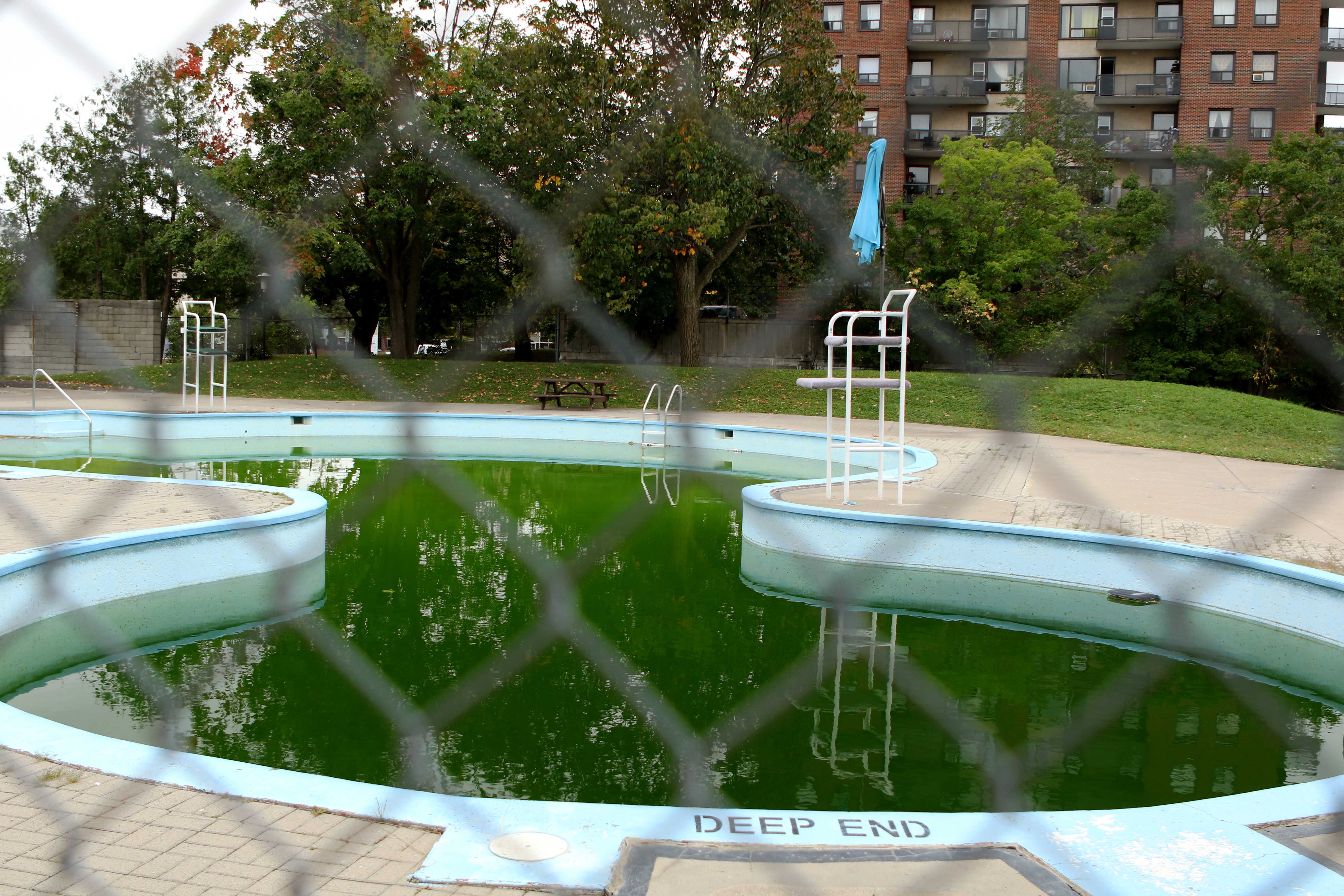
“One big family”
But what’s upsetting many community members the most is that dozens of families will be losing an integral piece of their lives.
“We all know each other, we help each other … there’s very strong ties between us,” said Abdullahi Ali, who has been living in Heron Gate for over 20 years and is a member of the HTC and Association of Community Organizations for Reform Now (ACORN). “Now the community is dispersing as everyone moves out.”
Over the years, the community has became an important landing strip for new immigrants to Canada, the HTC said.
“There’s people who have raised generation upon generations here, there’s people … still figuring out what Canada is, what life in Canada looks like,” Egal said. “They need people in the neighbourhood to translate for them every day, to help them maneuver through things like housing, financial aid, legal aid. (The move) is totally going to debilitate them of these every day support services they get in the neighbourhood for free.”
“They’re watching each others kids, getting rides, loaning money … it creates a market for specialized services and specialized businesses,” Tucker-Simmons added. “There’s a lot of really important social and economic benefits for community members living within close proximity and that’s why it’s so important to preserve.”
According to members of the community, the news has taken a serious toll on the mental health and relationships of people facing eviction.
“People we’ve spoke(n) to haven’t slept a proper night since they got the news, they’ve gone into depression since they’ve got the news,” Egal said. “People are quite literally searching for housing every single day,” and “it’s pitting people against each other in a fight for new homes.”
An unsteady future
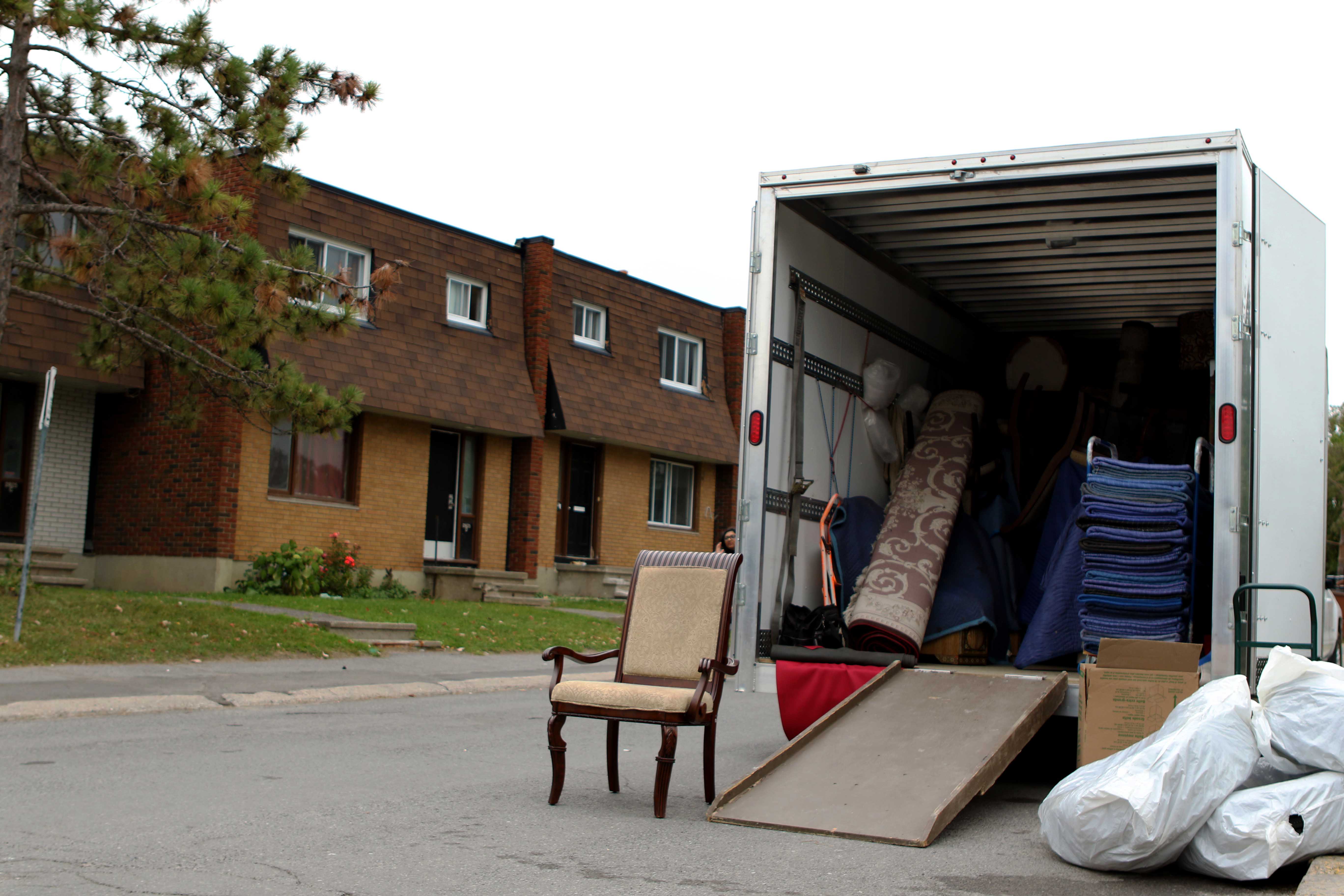
Tucker-Simmons said on Sept. 10 that close to 95 per cent of tenants facing eviction have secured new housing across the city.
But with the eviction date quickly approaching, the Dahirs haven’t been as lucky as most. They’ve toured close to 10 homes across the city but have yet to hit the jackpot.
Affordable “four-bedroom homes are very hard to find, it’s a rare gem,” Dahir said.
The current state of the housing market in Ottawa doesn’t make the situation any easier.
“It’s a crisis,” Egal said. “There’s a shortage of affordable homes in Ottawa.”
According to the Canada Mortgage and Housing Corporation’s most recent Rental Market Report from fall of 2017, Ottawa currently sits at a 1.7 per cent vacancy rate for rental apartments. This number is down from three per cent in 2016, and is also the lowest vacancy rate since 2011.
According to a report released by ACORN last month, the average market rent in Ottawa increased by 25 per cent from 2005 to 2015.
The report suggests that people of low-income living in Ottawa are being hit the hardest. Eighty-three per cent of households bringing in an income of under $10,000 per year live in severely unaffordable housing, meaning they spend more than half of their income on rent.
“The reality is, this wouldn’t be happening in an upper or middle-class neighbourhood,” Tucker-Simmons said.
Leilani Farha, the United Nations special rapporteur on adequate housing, took to the Huffington Post’s blog to criticize the Heron Gate eviction and broader housing issues across the globe, characterizing the eviction as a violation of international human rights law.
Timbercreek’s “focus does not seem to be on the well-being of their tenants and diversity of the cities where they hold assets,” she wrote. “Instead, they practice in unscrupulous demographic engineering in search of profits: replacing poor and vulnerable people with those who possess greater purchasing power.
Others who have found housing are facing barriers in moving into their new homes.
Ali, for example, has found a new home available for move-in come Nov. 1, but that leaves his family of nine without a home for the month of October.
“I told (Timbercreek) to be reasonable, that it’s not fair for me to move twice in one month,” Ali said, but “they’re insisting that I have to move at the end of this month.”
The right to return
Although it is unclear when exactly the new development on the grounds of the 150 homes set to be demolished will be completed, Timbercreek has said that these tenants will have the right to return to their community when it is.
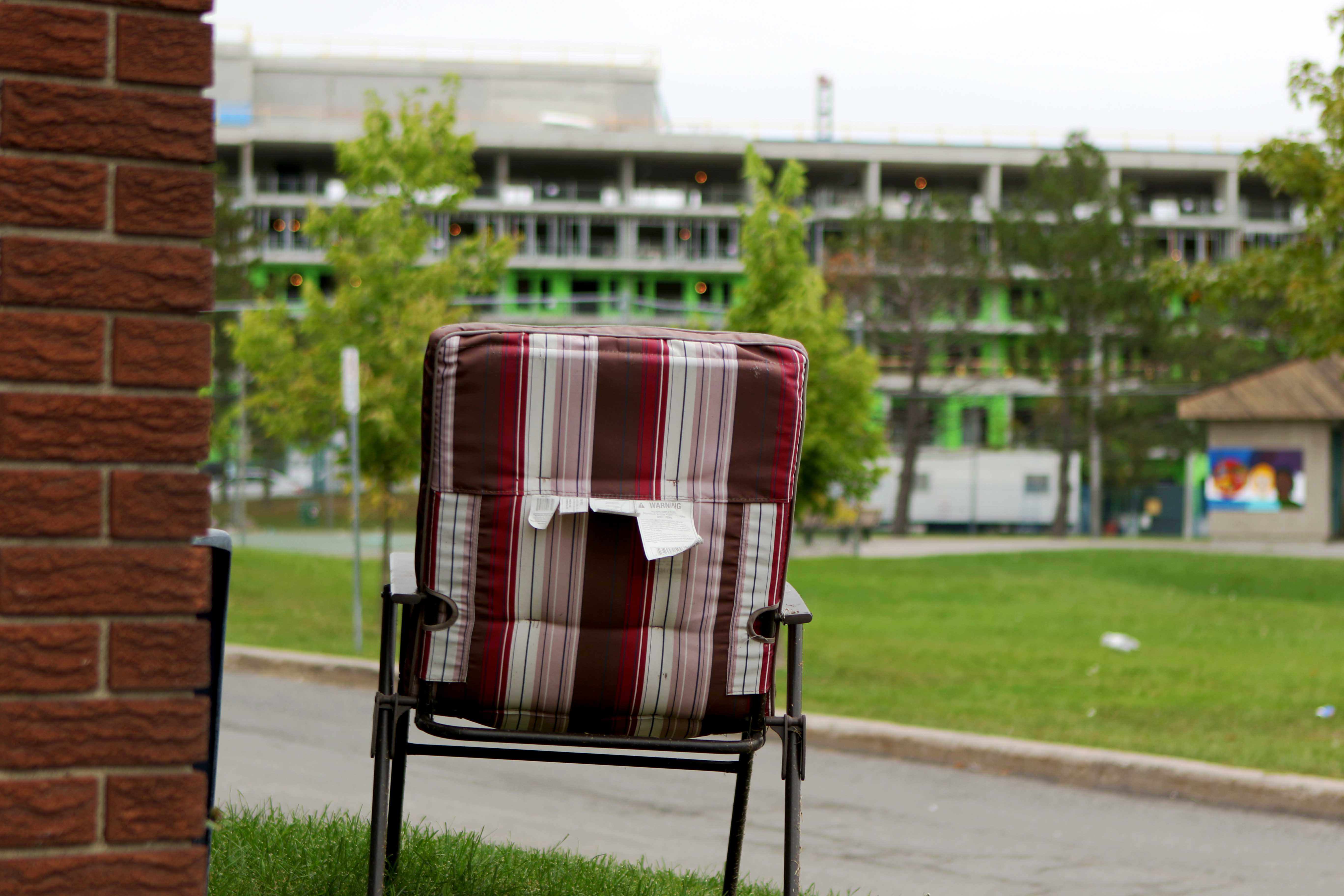
“Timbercreek talks about the right to return, but the right to return to what?” said Nima Hussein, an organizer with the HTC and political science student at the U of O.
Hussein said residents are scared to discover what they will be returning to, especially fearing significant hikes in rent.
With this in mind, Tucker-Simmons, the lawyer representing the evicted tenants, is preparing to launch a case under the Ontario Human Rights Tribunal to prevent this from happening.
“The accommodation request is that they have the right to return to their units to similarly priced units, because if they charge the market rent they’ll probably be priced out of the region,” he explained. “There’s never been a case quite like this before … that’s the biggest challenge.”
Tucker-Simmons, who teaches an access to justice practicum at the U of O with professors David Wiseman and George Brown, hopes to involve this year’s cohort of students with the case.
Even if the prospective case is successful, Dahir’s mother, father, brother, and grandmother aren’t sure they’ll return to Heron Gate, as long as the neighbourhood is owned by Timbercreek.
“We’re so disgusted and hurt by them,” Dahir said.
Dahir, who relies on her parents to take care of her two-year-old son when she’s at work, may have to move with them.
“I have to decide whether or not I’m going to be driving to their new home every morning at 5 a.m. to drop my son off or have him sleep over there during the week,” she said. “Either way, I’ll be losing time with my son.”








